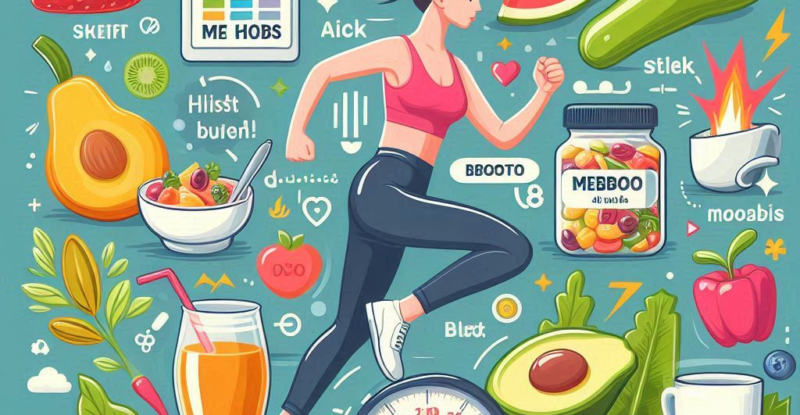Metabolism is your body’s engine, converting food into energy. A faster metabolism means burning more calories, even at rest. While genetics play a role, lifestyle factors significantly impact your metabolic rate. Here’s how to rev up your metabolism naturally.
Understanding Metabolism
Metabolism is a complex process involving various hormones, enzymes, and organs. Factors influencing it include age, gender, muscle mass, and overall health. While you can’t drastically change your basal metabolic rate (BMR), the calories your body burns at rest, you can increase your overall calorie expenditure through diet and exercise.
Nutrition for a Faster Metabolism
- Protein Powerhouse: Protein boosts metabolism by increasing thermogenesis, the process of burning calories to produce heat. Incorporate lean protein sources like chicken, fish, beans, and tofu into your meals.
- Spice Things Up: Certain spices like cayenne pepper, ginger, and cinnamon can rev up your metabolism. Add them to your meals for a flavorful boost.
- Hydration is Key: Drinking enough water helps your body function optimally, including metabolism. Aim for at least 8 glasses of water daily.
- Prioritize Whole Foods: Whole foods are packed with nutrients and fiber, which can support a healthy metabolism. Limit processed foods and sugary drinks.
- Balanced Diet: A diet rich in fruits, vegetables, whole grains, and lean protein provides the necessary nutrients for a healthy metabolism.
Exercise: The Metabolism Booster
Strength Training:
Building muscle mass increases your metabolic rate. Incorporate strength training exercises like squats, lunges, push-ups, and weightlifting into your routine.
Cardiovascular Exercise:
Activities like running, swimming, cycling, and dancing elevate your heart rate, burning calories and boosting metabolism.

High-Intensity Interval Training (HIIT):
Short bursts of intense exercise followed by rest can increase calorie burn and improve metabolic efficiency.

Consistency is Key:
Regular physical activity is essential for maintaining a healthy metabolism. Aim for at least 150 minutes of moderate-intensity exercise per week.
Lifestyle Factors for a Faster Metabolism
Quality Sleep:
Adequate sleep is crucial for hormonal balance, which affects metabolism. Aim for 7-9 hours of quality sleep each night.

Manage Stress:
Chronic stress can slow down your metabolism. Practice relaxation techniques like meditation, yoga, or deep breathing.

Limit Alcohol:
Excessive alcohol consumption can negatively impact liver function and slow down metabolism.
Regular Meal Times:
Eating regular meals helps maintain stable blood sugar levels and prevents your metabolism from slowing down.
Common Metabolism Myths Debunked
- Eating Smaller Meals More Often: While it’s essential to maintain stable blood sugar levels, there’s no scientific evidence to support the idea that eating more frequently boosts metabolism.
- Skipping Meals to Lose Weight: This can actually slow down your metabolism as your body goes into energy-saving mode.
- Cold Showers: There’s no scientific proof that cold showers significantly increase metabolism.
Boosting Metabolism Naturally: Key Takeaways
A faster metabolism can contribute to weight management and overall health. By incorporating these tips into your lifestyle, you can optimize your body’s natural ability to burn calories. Remember, sustainable changes lead to long-term results. Consult a healthcare professional or registered dietitian for personalized advice.






